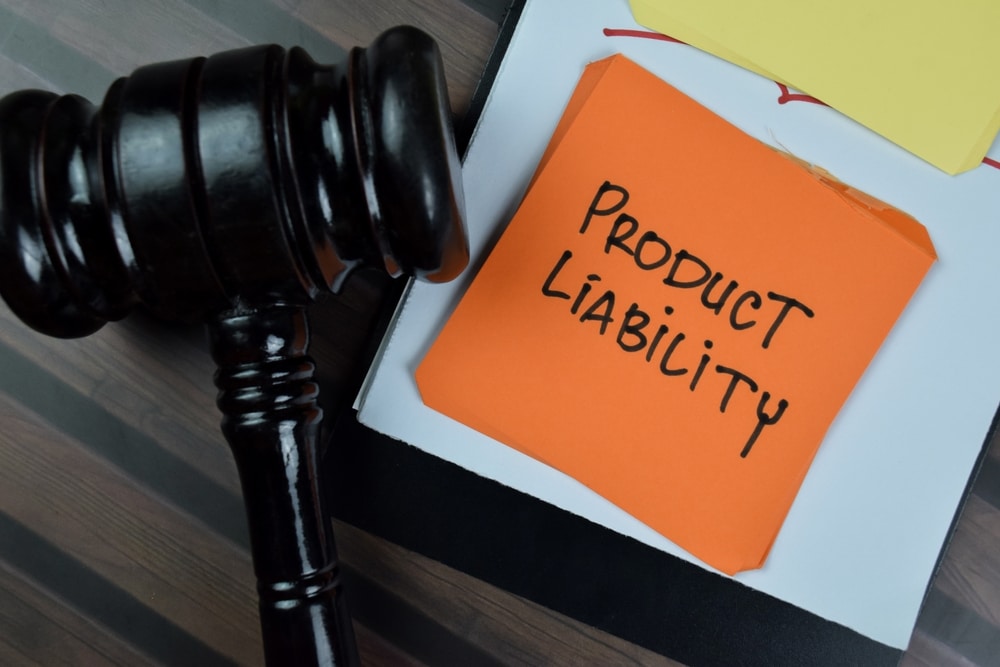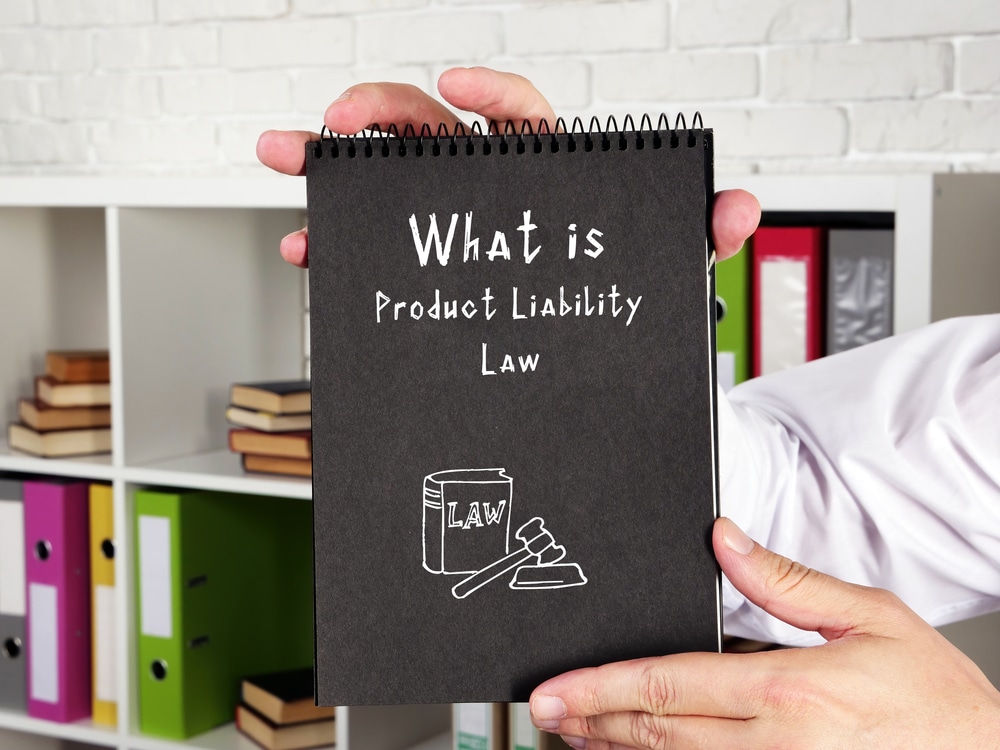What is product liability? It is the legal responsibility of a manufacturer or seller of goods to ensure that their products are safe for public use. When a company produces or sells a product that causes harm to a person or property, they may be held liable in a product liability lawsuit. Such a lawsuit can seek compensation for medical expenses, lost wages, and other damages caused by the defective product. To protect yourself, it is important to understand your rights and consider hiring a product liability lawyer and potentially filing a product liability claim.
What is Product Liability
Product liability is the legal concept that holds manufacturers, distributors, and sellers responsible for any harm caused by a product they produce, distribute, or sell. This includes any defects or hazards that may be present in the product, whether they are due to design, manufacturing, or a failure to warn about potential hazards.

If a product is found to be defective or dangerous, and results in injury or death to a consumer, the manufacturer, distributor, and seller can be held liable for any damages caused by the product.
Product liability laws are in place to protect consumers from dangerous or defective products and hold manufacturers, distributors, and sellers accountable for their actions. These laws also help to ensure that products are safe for consumers to use and that manufacturers, distributors, and sellers are aware of their legal responsibilities when it comes to product safety.
What is a product liability lawsuit? A product liability lawsuit is when an individual or organization sues a manufacturer, distributor, or seller for placing a defective product into the marketplace that caused harm.
What Is A Product Liability Claim?
Product liability claims are legal actions taken against manufacturers, distributors, and sellers of products that have caused harm to individuals or groups of people. These claims can be made when a product is defectively designed, manufactured, or has inadequate warning or instruction, causing injury or death to the consumer.
Product liability claims can also be made by anyone who has been affected by the product, including the individual who was injured, their family members, or anyone who has suffered financially as a result of the product.
It’s important to note that a product liability claim does not require negligence on the part of the manufacturer or seller. The mere existence of a defect or hazard in the product is enough to establish liability.

The 3 Types of Product Liability
Product liability law is a legal concept that holds manufacturers, distributors, and sellers responsible for any harm caused by a product they produce, distribute, or sell. This includes any defects or hazards that may be present in the product.
There are three main types of product liability claims:
- Design defect: This occurs when a product is designed in a way that makes it unsafe for its intended use. For example, if a car’s design causes it to rollover in an accident, it would be considered a design defect.
- Manufacturing defect: This occurs when a product is manufactured incorrectly, which leads to a defect that makes it unsafe for its intended use. For example, if a bottle of medication is contaminated during the manufacturing process, it would be considered a manufacturing defect.
- Failure to warn: This occurs when a manufacturer fails to provide adequate warning or instructions about a product’s potential hazards. For example, if a drug manufacturer does not include adequate warning about potential side effects, it would be considered a failure to warn.
Why You Should Consider A Product Liability Lawyer
If you or a loved one have been injured by a defective product, it’s important to consider hiring a product liability lawyer. Here are some reasons why:
- Experience: Product liability cases can be complex and require a deep understanding of the laws and regulations surrounding product safety. An experienced product liability lawyer will have the knowledge and expertise to navigate these complexities and build a strong case for you.
- Resources: Product liability cases often require significant resources, such as hiring experts to examine the product and testify in court. A product liability lawyer will have access to these resources and be able to use them to build a strong case for you.
- Negotiation skills: Product liability cases often settle out of court. An experienced product liability lawyer will have the negotiation skills to negotiate a fair settlement for you.
- Litigation skills: If your case goes to trial, an experienced product liability lawyer will have the litigation skills to represent you in court and fight for the compensation you deserve.
- No upfront costs: Most product liability lawyers work on a contingency fee basis, which means that you don’t have to pay any upfront costs. The lawyer’s fees will be taken out of the settlement or award you receive.
- Time-saving: Product liability cases can take a lot of time and energy to pursue, and it can be stressful to handle it alone. A product liability lawyer will take care of the legal work and keep you informed on the progress of the case, saving you time and stress.
Real World Examples of Lawsuits
- Johnson & Johnson’s talcum powder: In 2013, several women filed lawsuits claiming that the talcum powder caused them to develop ovarian cancer. The lawsuits claimed that Johnson & Johnson knew about the potential cancer risk associated with talcum powder but failed to warn consumers.
- Toyota’s sudden acceleration problem: In 2009 and 2010, Toyota faced several lawsuits and recalls after several reports of sudden acceleration in its vehicles. The lawsuits claimed that the sudden acceleration was caused by defects in the vehicles’ electronic throttle control system. In 2013, Toyota agreed to pay $1.2 billion to settle a U.S. Department of Justice investigation into the sudden acceleration problem.
- DePuy Orthopaedics’ hip replacements: In 2010, DePuy Orthopaedics, a subsidiary of Johnson & Johnson, faced several lawsuits over its hip replacement devices. The lawsuits claimed that the devices were defectively designed and caused serious injuries to patients. In 2013, DePuy Orthopaedics agreed to pay $2.5 billion to settle the lawsuits.
- Merck’s Vioxx: In 2004, Merck faced several lawsuits over its pain medication Vioxx. The lawsuits claimed that Vioxx caused heart attacks and strokes in patients who took the drug. In 2007, Merck agreed to pay $4.85 billion to settle the lawsuits.
- General Motors’ ignition switch defect: In 2014, General Motors faced several lawsuits over a defect in the ignition switches of several of its vehicles. The defect caused the vehicles to stall, lose power, and prevent airbags from deploying in the event of a crash. The lawsuits claimed that General Motors knew about the defect but failed to take action. In 2015, General Motors agreed to pay $900 million to settle the lawsuits.
- The Similac and Enfamil baby formula lawsuit refers to a legal case that was filed against the two major baby formula manufacturers, Similac and Enfamil, for alleged links to necrotizing enterocolitis (NEC) in premature babies. NEC is a serious medical condition that affects the intestinal tract of premature infants and can cause severe damage and even death.
The lawsuit was filed by parents of premature babies who developed NEC after being fed Similac or Enfamil formula. The plaintiffs in the lawsuit claimed that the manufacturers failed to properly warn about the potential risks of NEC associated with their products, and that they failed to use appropriate ingredients or take appropriate precautions to prevent NEC.
Final Thoughts
That said, product liability is a legal concept that holds manufacturers, distributors, and sellers responsible for any harm caused by a product they produce, distribute, or sell. If you or a loved one have been injured by a defective product, it’s important to consider hiring a lawyer. They will have the knowledge, resources, and skills to build a strong case for you and help you get the compensation you deserve.





